Seeking substance and style: Island hopping in the Cyclades
There’s more to the Cyclades than headline-making Mykonos and Santorini, says Lucy Halfhead.

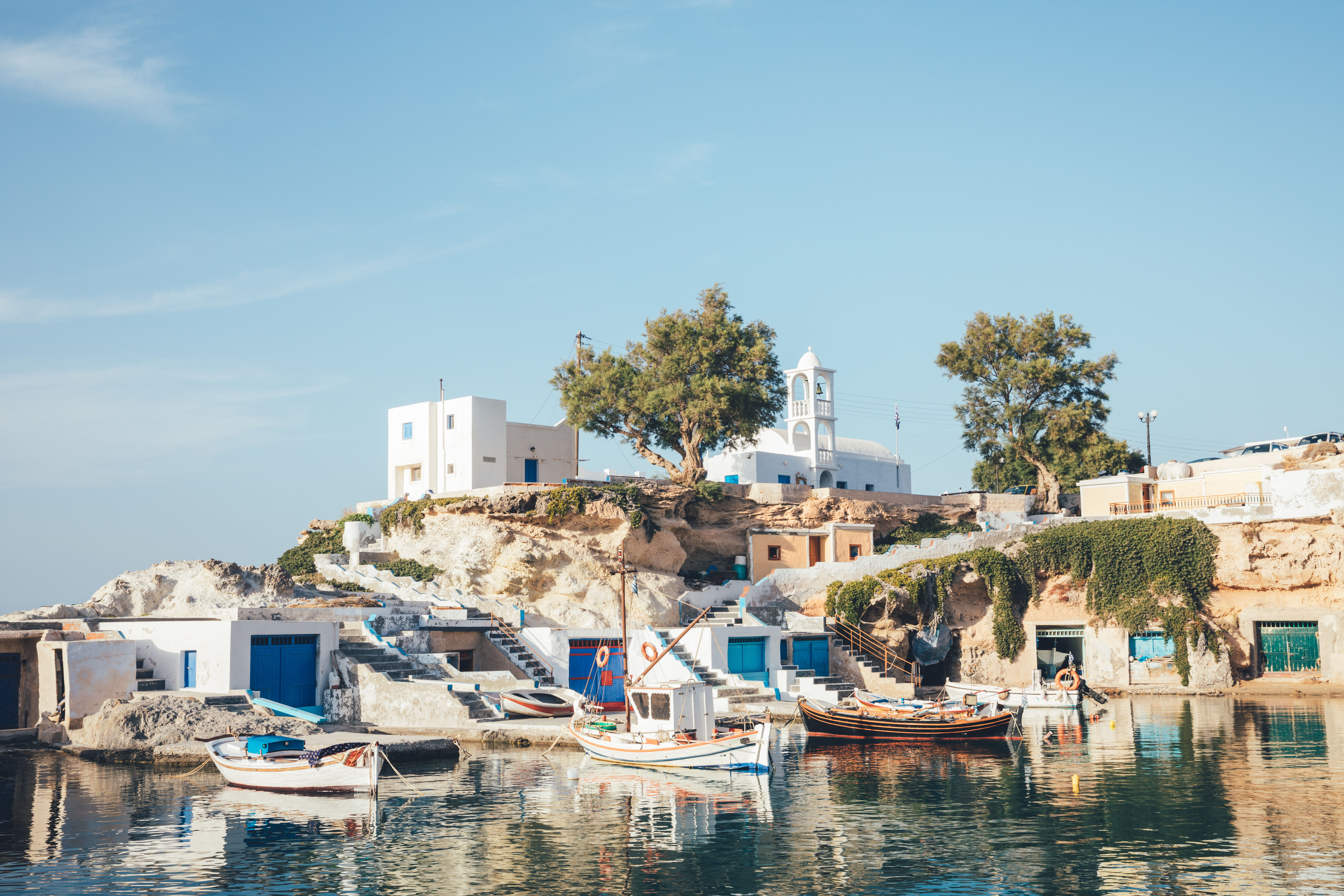
Exquisite houses, the beauty of Nature, and how to get the most from your life, straight to your inbox.
You are now subscribed
Your newsletter sign-up was successful
The Cyclades — with their sugar-cube houses tumbling down hillsides, domed chapels silhouetted against the sky and beaches lapped by impossibly blue water — have long been synonymous with postcard-perfect Greece. But beyond the well-worn paths of Mykonos and Santorini lies a quieter, richer version of island life — one that favours slow afternoons over flashy beach clubs, family-run tavernas over scene-stealing restaurants and scenery over selfies. It’s here, in the lesser-trodden corners of the Aegean, that the islands cast their most powerful spell.
From the rocky terrain of Milos, with its volcanic beaches and catacombs, to the stillness of Folegandros, where time seems to soften around wind-whipped cliffs and jasmine-scented squares, each island offers a unique rhythm and reason to linger. On Paros, lively waterfront villages rub shoulders with serene swimming spots and chic boutiques, while nearby Antiparos remains a well-kept secret, beloved for its bohemian charm. The storied culinary traditions of Sifnos draw in-the-know food lovers and slow travellers alike, while Serifos feels like a portal to an older Greece, where myths hang in the air and sunsets colour storied hills in gold.
This is a Cyclades island-hopping itinerary for travellers seeking substance as well as style, where the luxury lies not in excess, but in authenticity — a swim in crystalline waters; dinner with your toes in the sand; the hush of a town square at dusk. Whether you're wandering through marble-paved alleys, diving from a fisherman’s boat or savouring chickpeas baked in wood ovens, these five islands offer a deeper kind of escape — one that stays with you long after you’ve left the harbour behind.
Milos
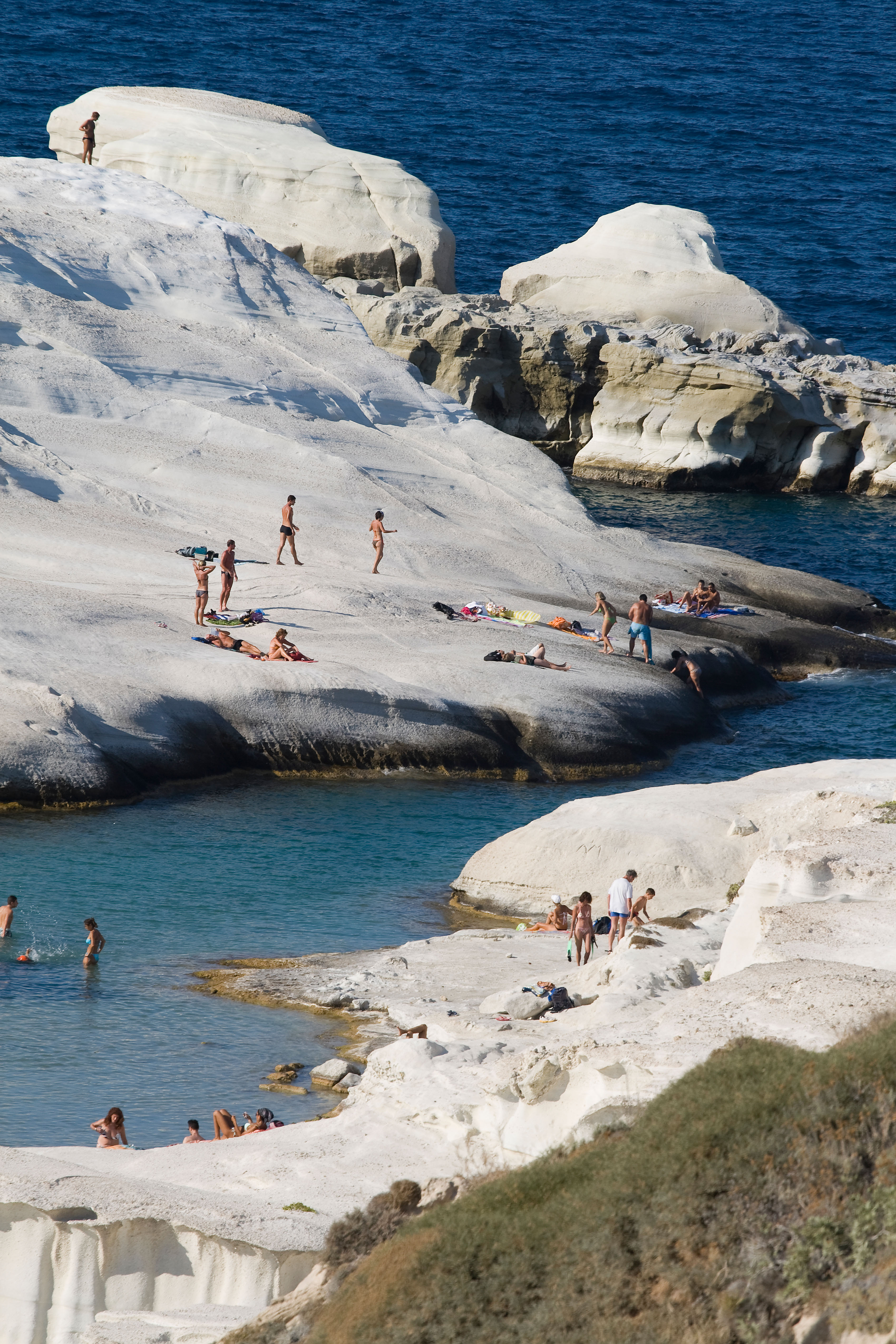
Despite laying claim to some of the best beaches in the Aegean, the mineral-rich island of Milos remains under the radar. Dramatic landscapes shaped by volcanic activity range from the lunar-white cliffs at Sarakiniko to the surreal, rose-tinted rock formations at Kleftiko, a former pirate hideout now best reached by boat. Unlike its glitzier neighbours, Milos moves at a slower pace: sun-bleached days, long swims and golden evenings with not a beach club in sight.
The island’s artistic history is no less intriguing. In 1820, a young French naval officer named Olivier Voutier discovered the now-famous Venus de Milo, buried in a farmer’s field. The statue’s legacy lives on in the island’s small but engaging Archaeological Museum in Plaka, where you can also browse the delightful Totem for crochet dresses, leather sandals and soft cotton scarves, all by Greek designers. Also worth exploring are the atmospheric early Christian catacombs (second in size only to those in Rome, Italy) and the hillside Roman-era amphitheatre. Nearby, sulphurous hot springs at Kanava and Lakkos, once praised by Hippocrates, still bubble up quietly from deep subterranean depths.
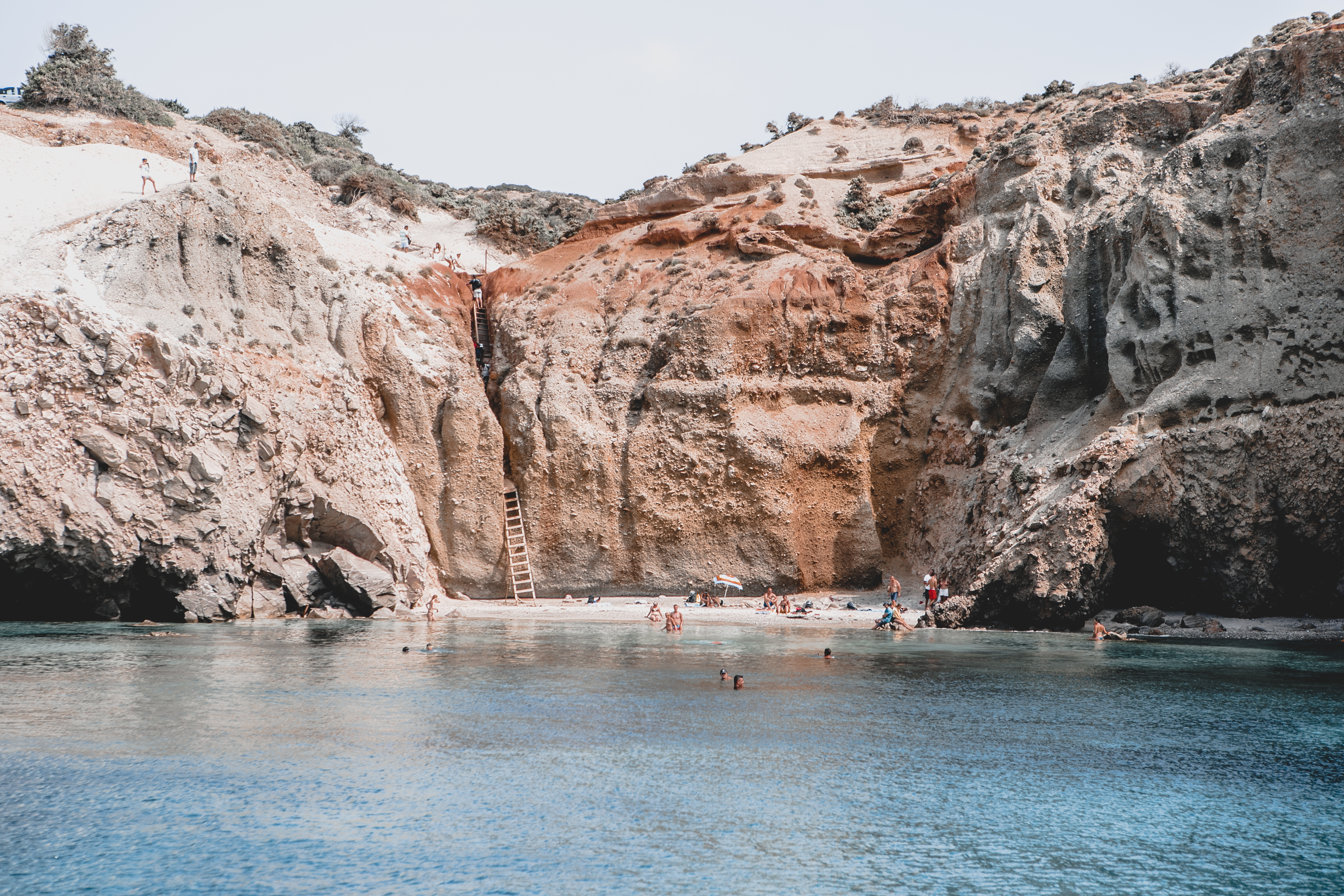
To access Tsigrado beach you'll need to climb down the cliff face on a wooden ladder.
Lay your head at Domes White Coast Milos, which offers sleek, minimalist suites complete with private pools and a spa that channels the island’s volcanic soul. For something more secluded, check in to Skinopi Lodge on a sea-facing slope above tiny Skinopi village, made up of just seven villas, inspired by traditional fishermen’s houses.
Lunch by the water at Medusa in Mandrakia is hard to beat. Think grilled octopus and saganaki with a chilled carafe of white wine. For hearty traditional dishes, try O! Hamos! near Papikinou Beach — their goat stew and fennel pies are the stuff of local legends. As night falls, sip on cocktails at Verina or Mosaic in Plaka, or under the stars at Akri Bar, a relaxed, jazz-soundtracked spot in Adamas, before treating yourself to a late-night, waterfront gelato from retro-chic parlour Aggeliki.
Exquisite houses, the beauty of Nature, and how to get the most from your life, straight to your inbox.
Folegandros
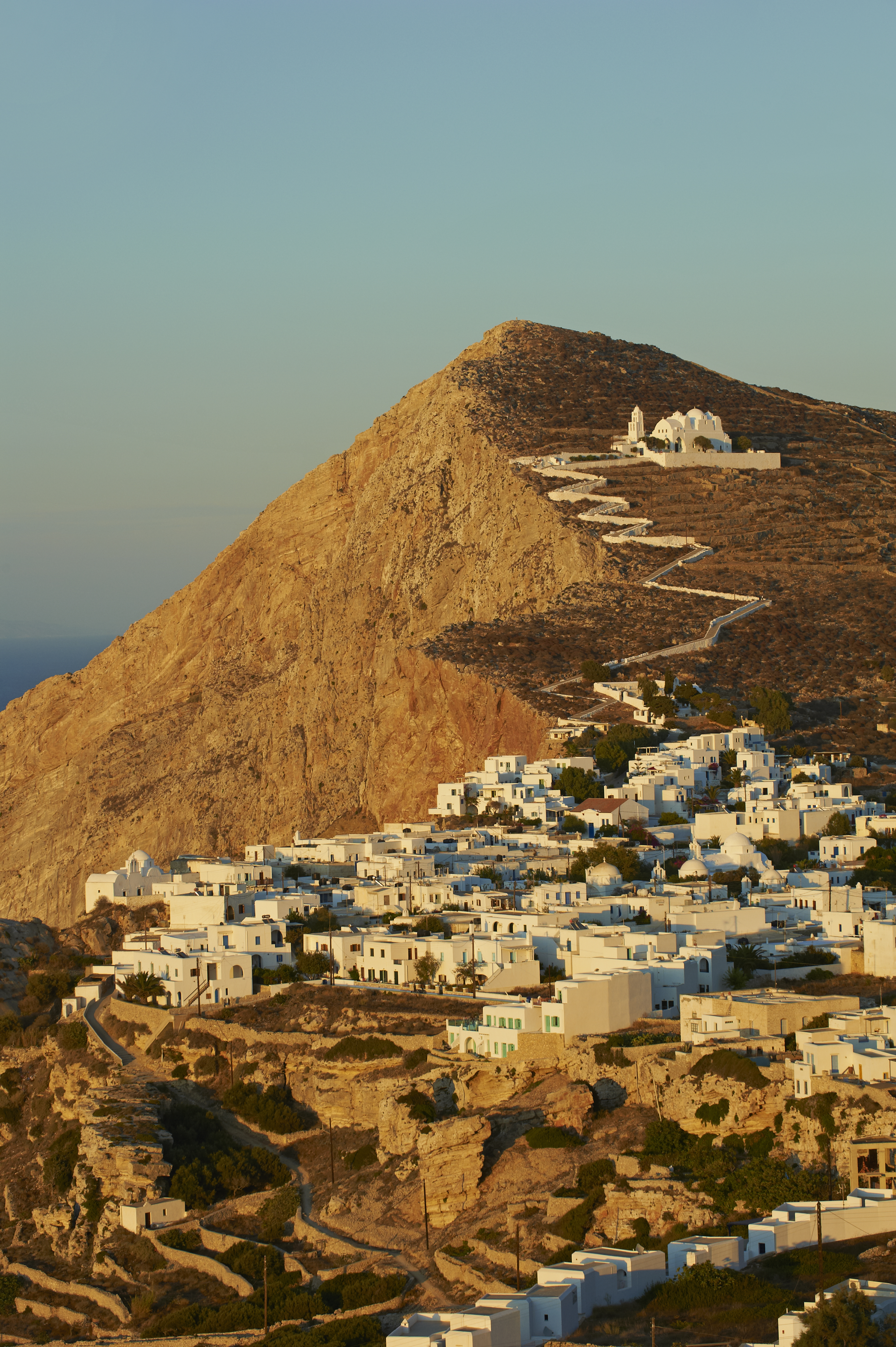
It’s easy to forget what real stillness feels like until you arrive on Folegandros. No airport, no cruise ships, no thumping beach bars, just wide skies, dramatic cliffs and a craggy, ochre landscape. Most visitors find themselves in Hora, a labyrinth of whitewashed houses and cobbled lanes that open out, from time-to-time, onto leafy squares. Settle into a table at Pounta, known for its colourful juices and breakfasts, or wander into To Zimaraki, a rustic baker-turned-deli selling fresh pasta and homemade pies. The best shopping can be found at Design 35, stocked with breezy linen pieces, handmade jewellery and a great hat selection.
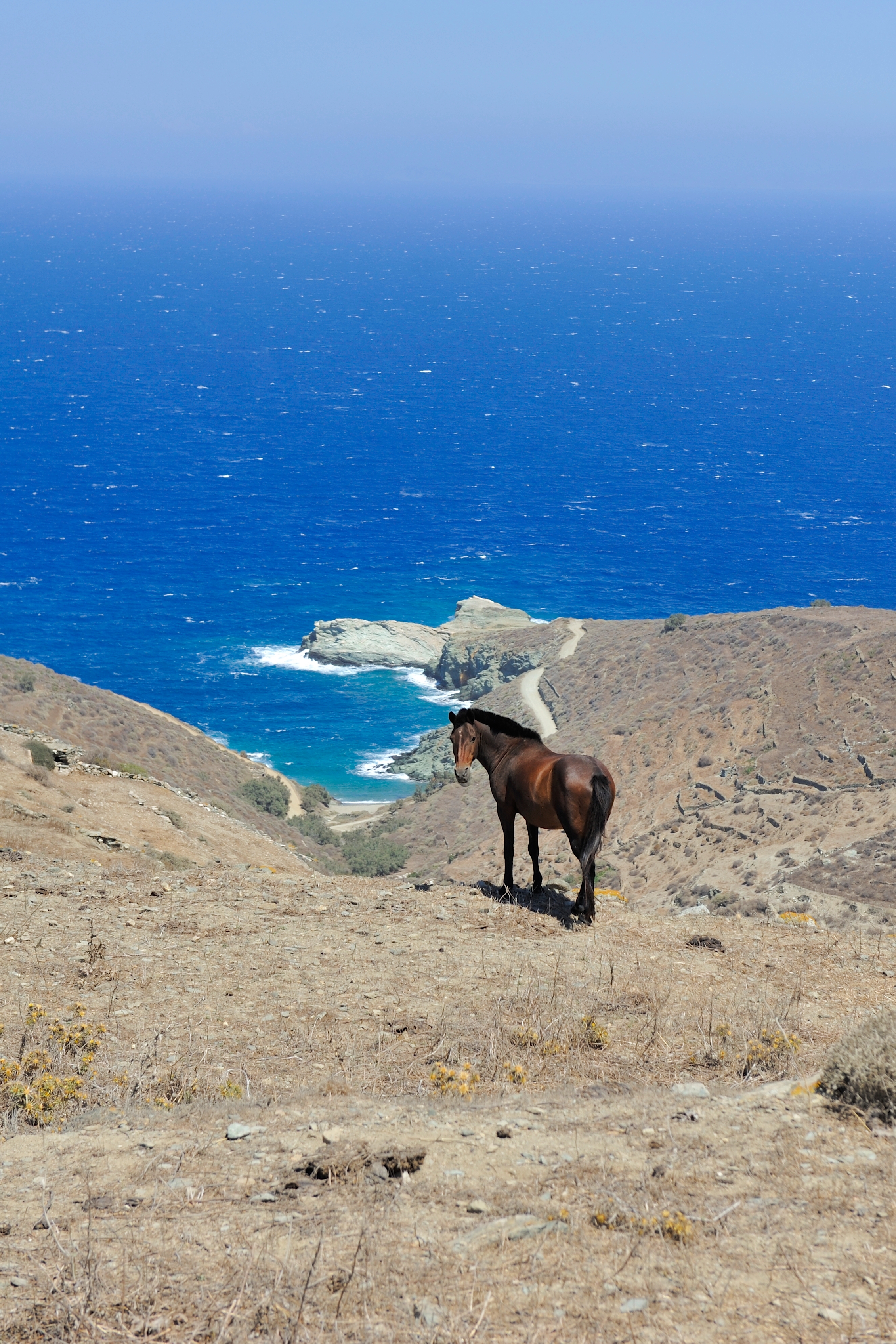
Dinner is a leisurely, candlelit affair at Piatsa, which serves a satisfying slow-cooked lamb doused in lemon and herbs, while Chic dishes up unfussy Greek staples made from homegrown ingredients. Work up an appetite by walking to the island’s crown jewel, the Church of Panagia, perched high above the town on a marble path that glows gold at sunset. A little further afield by foot or small boat, the beaches at Agali and Katergo are blissfully undeveloped and perfect for an afternoon swim in glassy water.
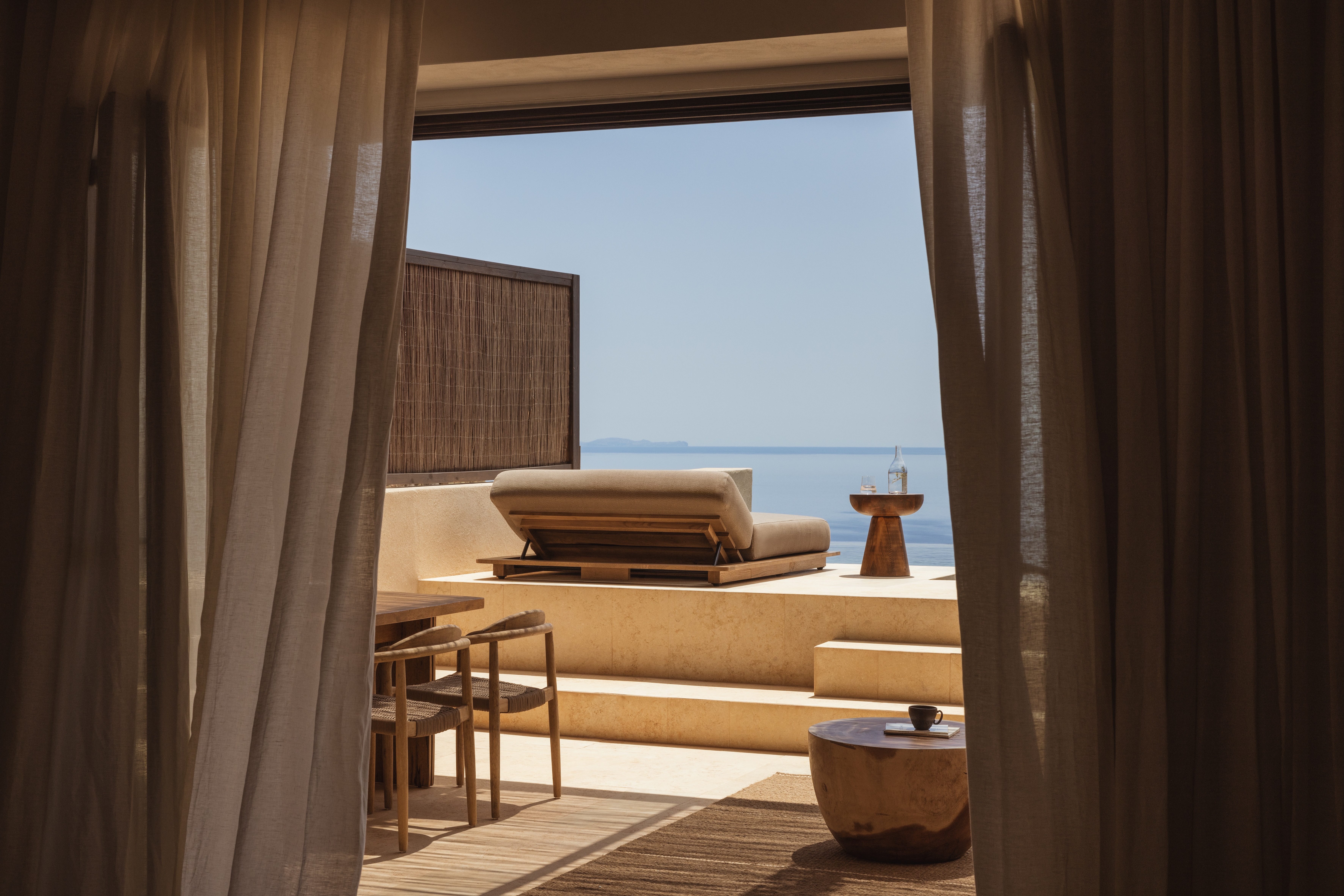
Folegandros’ raw beauty finds its match in Gundari (above), a new, eco-luxury retreat carved into the cliffs above the southern coast. Each minimalist suite comes with a private pool and floor-to-ceiling sea views. Chef Lefteris Lazarou, Greece’s first Michelin-starred chef, heads up the restaurant, whose dishes spotlight ingredients from the land and sea: sea fennel foraged from the cliffs, wild capers sun-dried by local farmers and just-caught scorpion fish pulled straight from the surrounding waters.
Paros
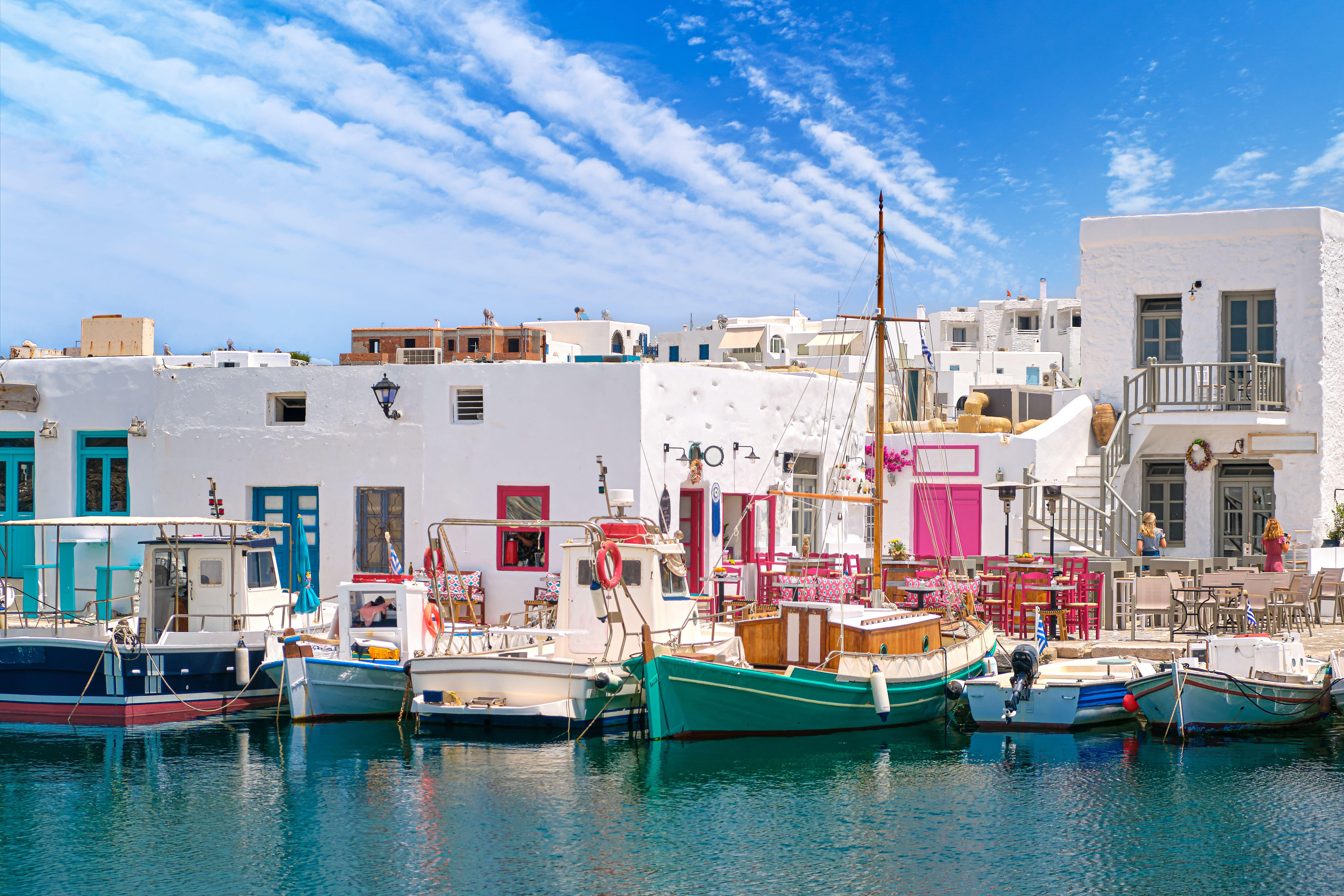
Quintessentially Cycladic, Paros strikes a perfect balance between lively charm and timeless tradition, making it a perennial favourite for travellers who crave both culture and calm. Start in Parikia, the bustling capital, where the harbour hums with fishermen cleaning their nets and waterfront cafés serve rich Greek coffee. Lose yourself in the maze of cobbled streets, discovering hidden gems like Atelier 1935, for tan leather sandals, and Egg which specialises in bags and purses in rainbow colours.
For an even livelier beat, head to Naoussa, a picturesque waterfront village where cobalt shutters frame inviting tavernas and sleek yachts moor next to fishing boats. At Soso, simple but exquisite dishes are the order of the day — sea bass, vine-ripened tomatoes, and creamy fava beans paired with robust wines. Afterwards, linger over a cocktail at Barbarossa, a hotspot for sundowners with an unbeatable view.
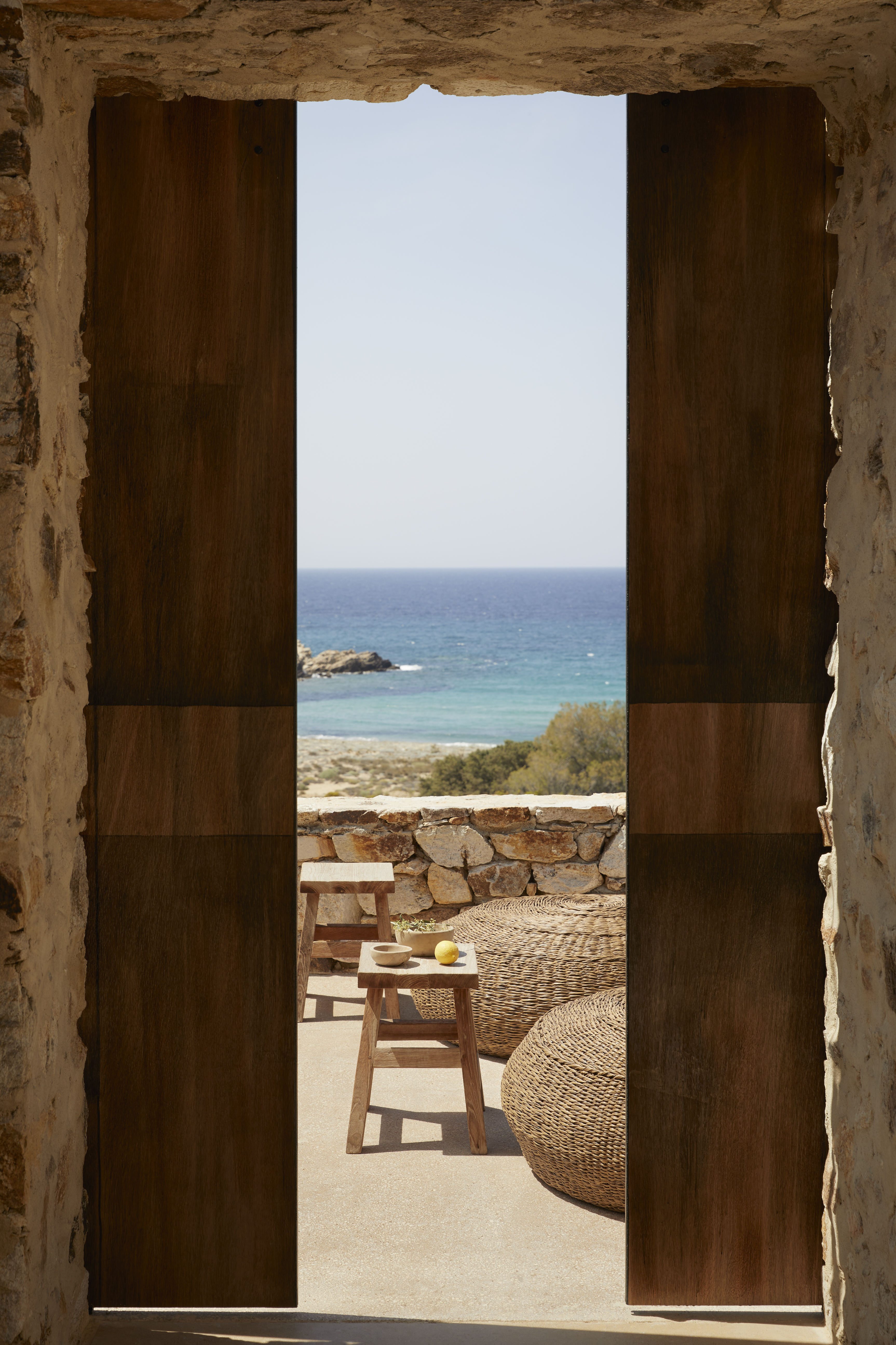
Just a short boat ride away lies Antiparos, a smaller, quieter island that still feels like a local secret. Boutique hotel The Rooster (above) is the perfect base from which to explore its pristine beaches and hidden coves. Back on Paros, mornings are spent at Kolymbithres Beach, known for its sculptural granite boulders and calm seas, while evenings bring the magic of candlelit lanes, with restaurants like Levantis in Parikia serving inventive Mediterranean dishes crafted from the freshest produce in a pretty garden setting.
When it comes to places to stay, Cosme near Naoussa offers smart nautical design touches and direct beach access, while Andronis Minois is newly refurbished property with a sublime spa and bountiful breakfast buffet.
Sifnos
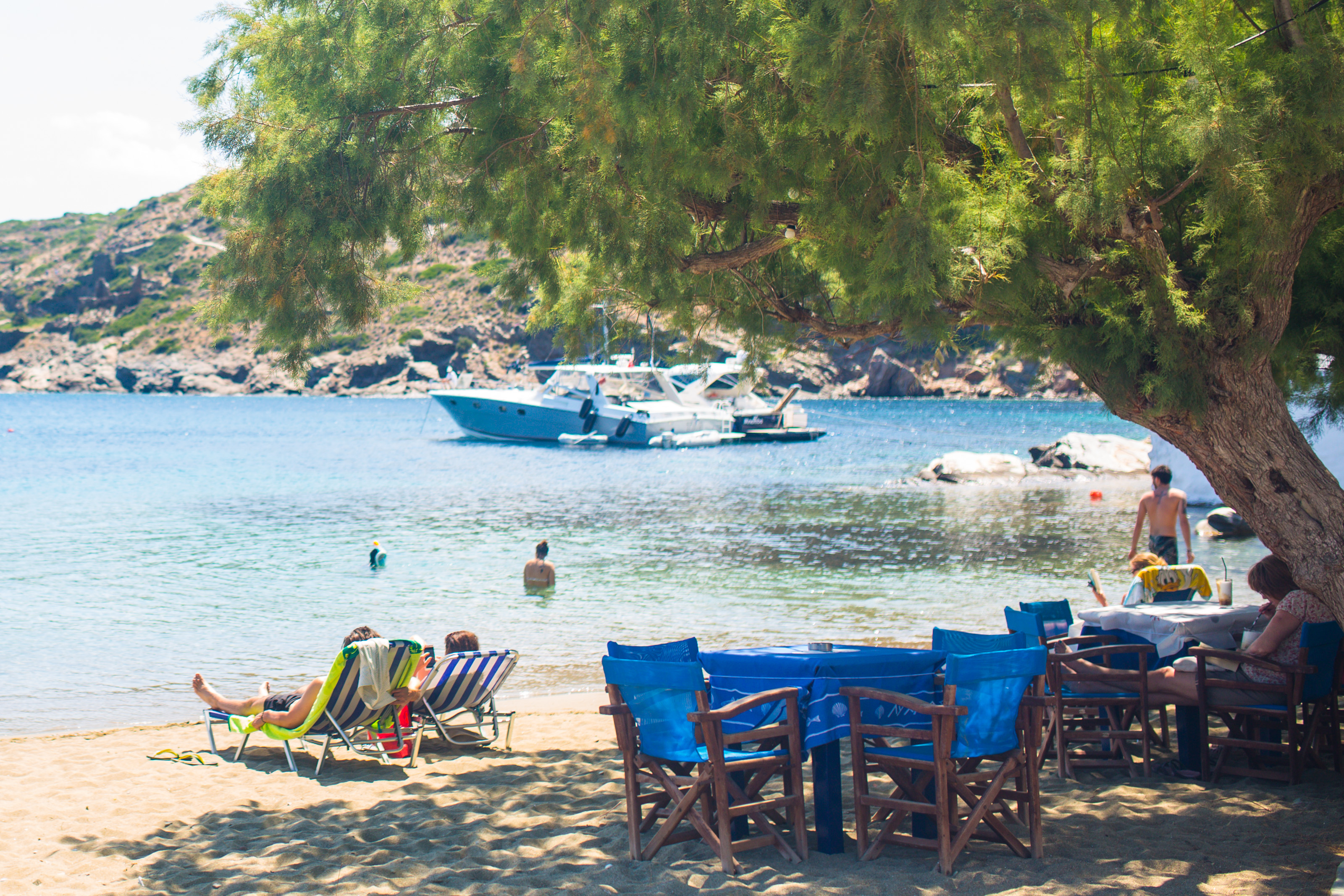
Among the quieter stars of the Cyclades, Sifnos is an island that reveals its charms without fanfare. It’s beloved by Greeks themselves, particularly those with an appetite, thanks to a long and proud culinary heritage. Many of Greece’s notable chefs hail from the island, including Nikolaos Tselementes, the early 20th-century cook credited with elevating traditional dishes like moussaka and pastitsio, adding a lush béchamel crown to what had previously been humble layers of meat and vegetables.
The island itself is a feast for all the senses — not just the tastebuds. At dawn, the sky blushes orange behind whitewashed chapels and the scent of wild thyme drifts on the air as swimmers make their way down to the rocks at Faros or Vathi for a quiet dip. Lunch might mean a clay pot of mastelo (lamb slow-cooked with dill and red wine) or revithada, a fragrant chickpea stew baked overnight in a wood oven — best enjoyed at To Tsikali, a tiny taverna on Cheronissos beach where the tables might as well be in the water. For something more elevated, Cantina in Kastro pairs delicious seafood with knockout sunsets.
Evenings begin in Sifnos’s handsome capital, Apollonia, a cluster of narrow lanes where rickety tables spill into bougainvillea-filled courtyards and mezze flows freely at Drakakis, a neighbourhood favourite. Just up the hill, Botzi serves modern takes on Cycladic classics and boutiques like Atsonios and Arzantiera showcase the island’s centuries-old traditions of pottery and silversmithing.
Artemonas, a graceful sprawl of neoclassical mansions, citrus groves and old-fashioned pastry shops like Theodorou’s — go for its almond sweets and honey-soaked loukoumades — is a short walk north. High above it all, on the island’s eastern edge, sits Verina Astra, a design-forward hideaway with sleek stone suites, yoga at sunrise, a saltwater pool and terraces with infinite sea views.
Serifos
Serifos will likely always be considered one of the most captivating corners of the Cyclades archipelago and the Athenians have long known about its charms. It’s about time the rest of us cottoned on.
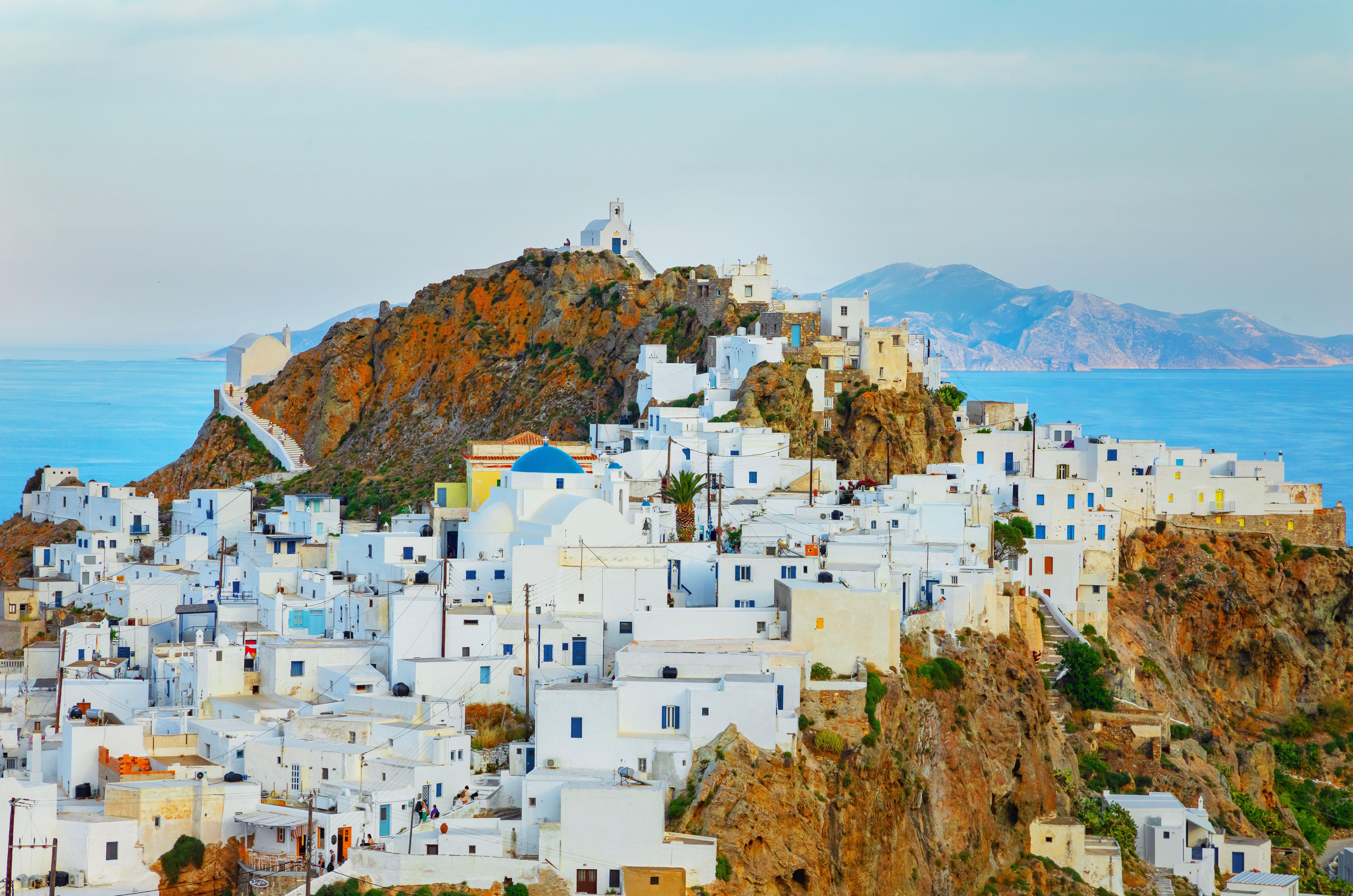
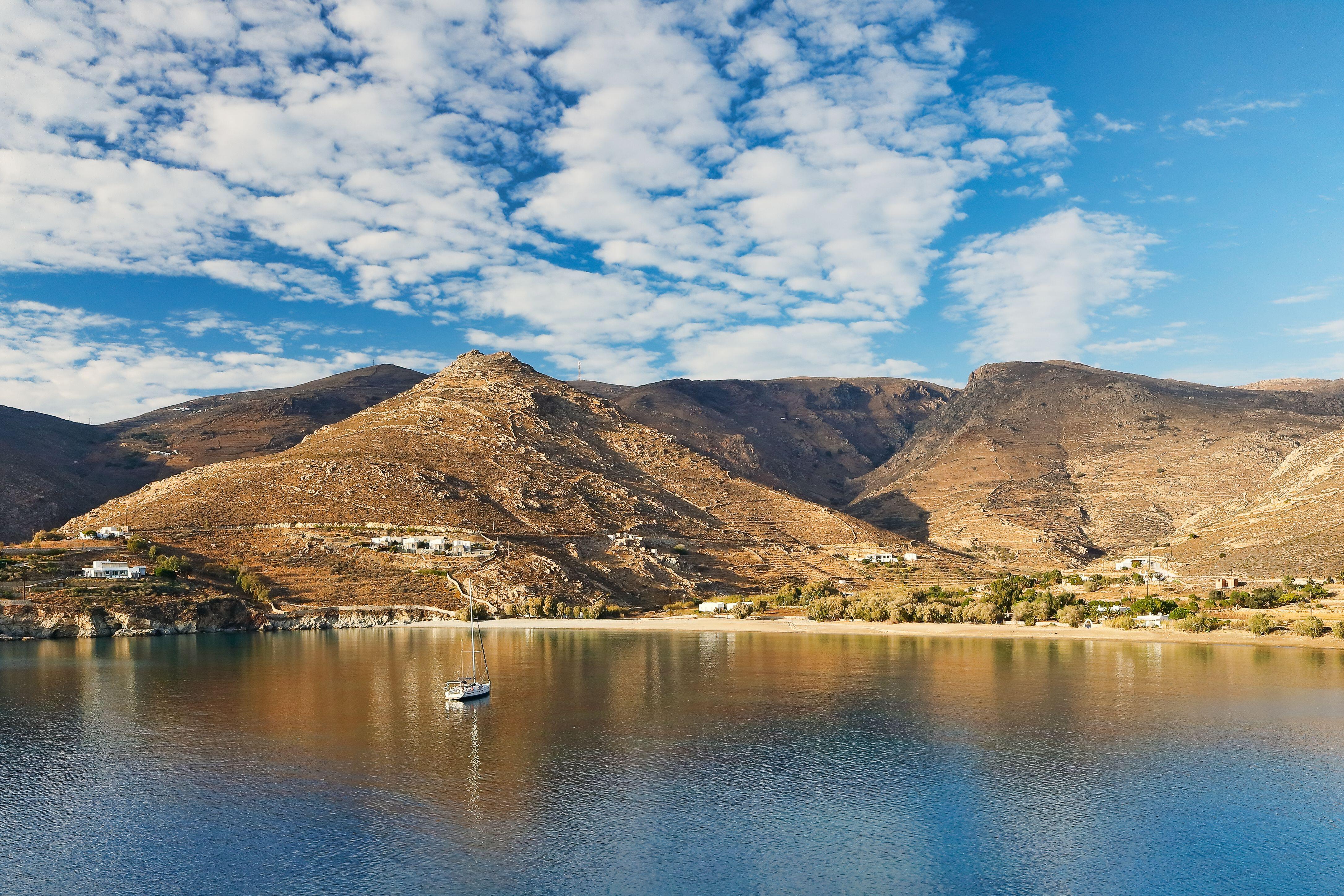
It offers little in the way of spectacle, but that’s precisely the point. The drama comes from the land itself: rocky, blanched by the summer’s sun and seemingly unchanged since antiquity. According to the Greek myths, this is where Perseus turned the tyrant Polydectes to stone. At its heart lies the beguiling hilltop town of Hora, widely considered to be one of the most picturesque in Greece. It clings to the mountainside, its winding alleys and cobalt doors spilling downwards towards the sea in a dazzling patchwork of light and stone.
The marble-paved main square is the place to linger over a strong Greek coffee at Strou Stratou, or sip iced watermelon juice paired with a slice of portokalopita (orange cake drenched in syrup) from Halida Bakery. If you’re feeling peckish in the evening, head to a waterside taverna in Livadi; Thalami is a standout for its chargrilled octopus with rosemary, lemony calamari, and tomato pappardelle tossed with sheep’s cheese.
For a stay that matches the rhythm of the island, check in to the Coco-Mat Eco Residences on Vagia Beach, a peaceful hotel converted from miners’ houses set right on the sand. Designed with natural materials and shaded terraces, it’s the kind of place where you sleep with the windows open and wake to nothing other than the sounds of waves.
Lucy Halfhead is a London-based travel and lifestyle editor, writer and consultant, specialising in luxury hotels. The former travel director of Harper’s Bazaar, ELLE and Esquire, she now freelances for a number of international titles and has worked with brands including Estée Lauder and The Hoxton.
